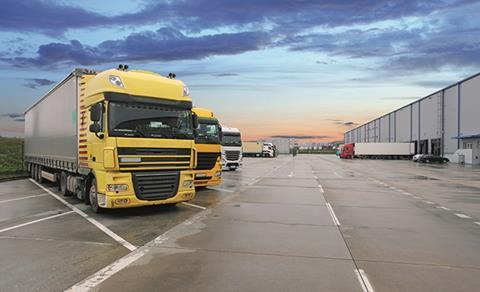Industrial and logistics real estate is undergoing a transformational renaissance. Warehouses now form the spine of a modern supply chain.

The result has been an increase in the development and upgrading of these facilities to meet structural changes in consumer demands - we want the products on time, intact and at a low cost. For the first time, the supply chain is what differentiates UK retailers, with the cheapest, quickest and most reliable winning the battle.
As we head towards the first anniversary of the EU referendum, it is worth reflecting on a few surprises we’ve seen since the vote to leave. While it felt like the world might fall off the cliff on that June morning, it did in fact survive, in the face of rising populism globally.
The macropolitical instability affecting mature economies and the accompanying uncertainty is here to stay and investors need to adapt. However, against this backdrop, opportunities have arisen and stable, defensive, asset-backed investments are increasingly in demand from investors.
Logistics is now a top pick with investors who favour its strong defensive fundamentals, driven by the increasing shift online for retail and the demands of global product flows.
Logistics is now a top pick with investors who favour its strong defensive fundamentals, driven by the shift online for retail
Investment flows are steadily increasing and may top €30bn (£26bn) of annual volumes in Europe this year alone as more investors look to allocate capital to the sector. The income growth story remains attractive, underpinned by strong structural fundamentals and a significant lack of supply.
However, the capital growth story has a few challenges ahead. Previously, periods of industrial outperformance have marked the end of commercial property upturns.
Rental values remain on an upward trajectory
Since last year’s vote to leave the EU, all property capital values are down 1.7%, whereas industrial values have risen by 3.3%. Is this set to continue? There are many reasons to believe so, as the steady growth in industrial rental values continues to make sense - British manufacturers are benefiting from last year’s fall in the pound and growing ecommerce sales are generating strong demand for distribution space.
The supply and availability of good-quality, well-located space is, however, looking like a serious problem in the sector with no immediate solution, which will keep rental values on an upward trajectory.
This time around, it won’t be traditional market or economy risks that will primarily affect capital values over the medium to long term. It is continuous technological advancements in transportation and manufacturing.

Tech disruptions affecting industrial real estate, including industrial automation, the autonomous vehicle boom and 3D printing, will be the drivers of the sector in a big way, with the resulting structural obsolescence likely to have an impact on values.
The UK is set to outperform the rest of Europe when it comes to population growth, ongoing urbanisation and the rise of online sales. Despite a number of obstacles ahead, including a likely ‘expensive divorce’ around the corner, we continue to believe in the strong fundamentals, which will withstand any market or technological disruptions.
What is even more exciting is the sheer scale of what that growth could look like, if online sales grow at a steady rate of 3% to 5% over the next decade, which is the conservative estimate. That makes today the real day one of logistics growth.






























No comments yet